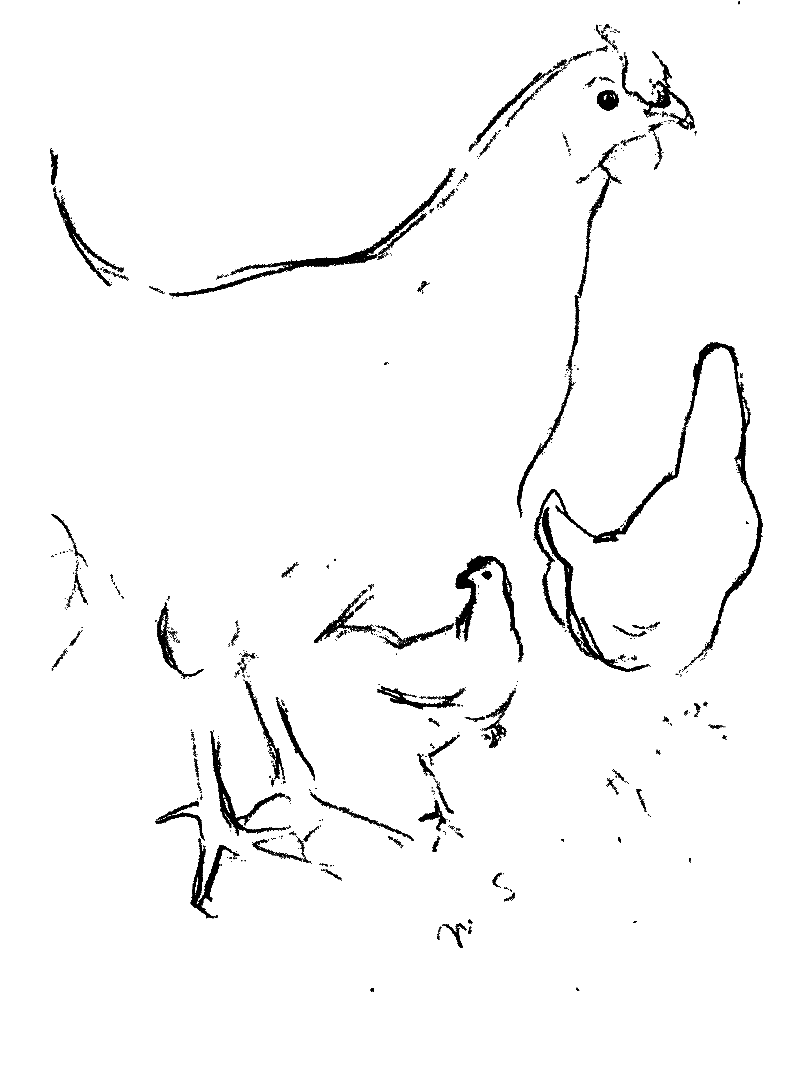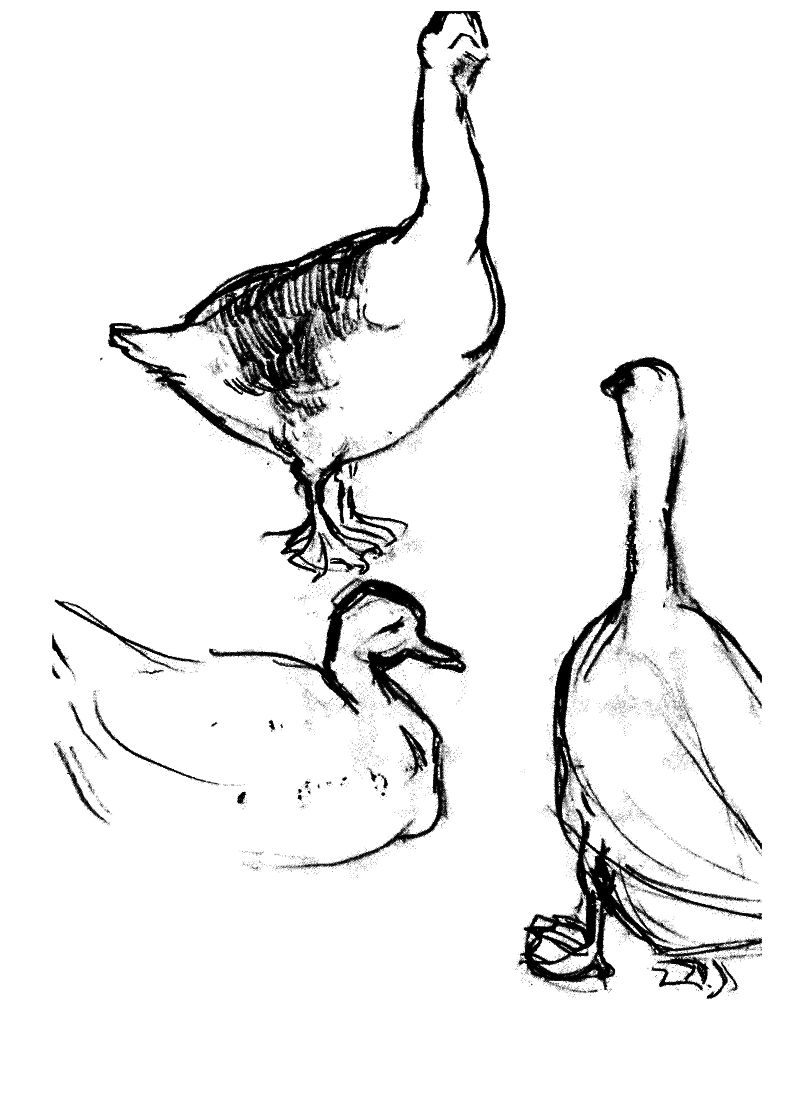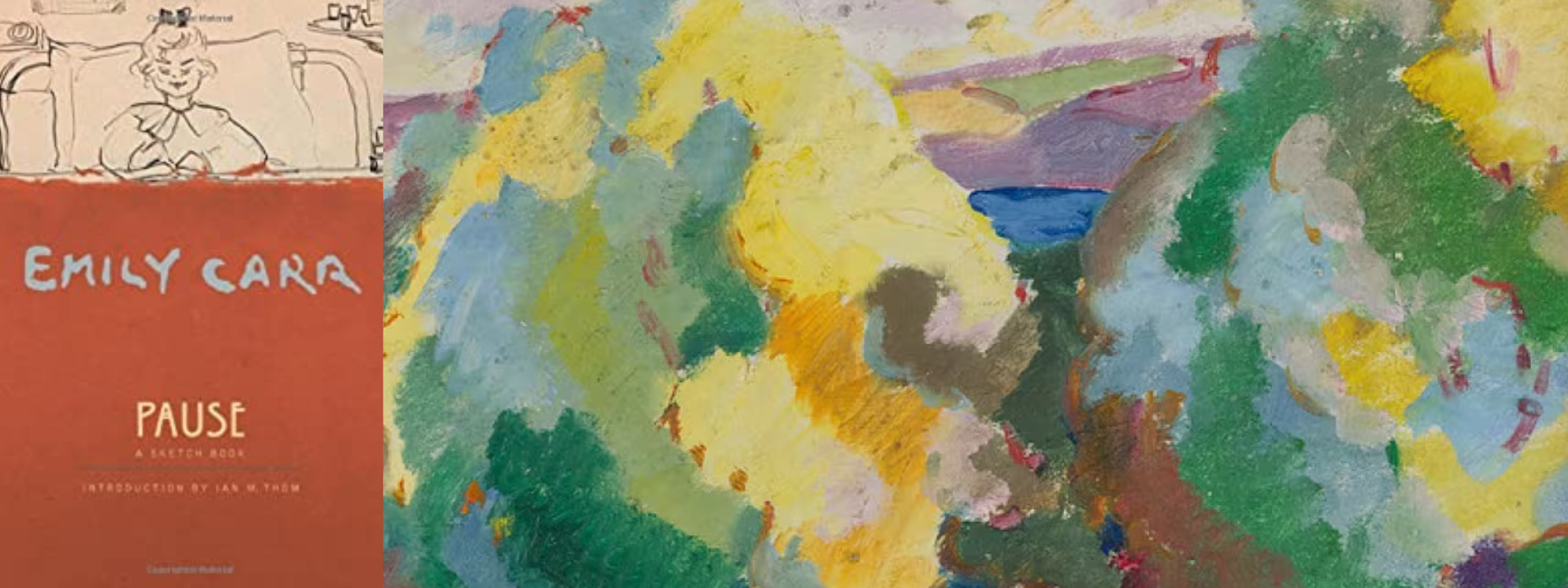It was the San Event. Everything timed back to last year’s or forward to next year’s Picnic. Unless death actually had his finger poked into you, no one able to stand on his two feet missed the Picnic; otherwise he would be considered a funker.
The Picnic lingered on patients’ tongues from one year to the next, a function prefaced by lively activity and anti-climaxed by sniffs and rheumatics.
Lungs are slow healers. Some patients took in many Picnics. They might go home between whiles, might have spells of tolerable wellness. Sooner or later it seemed, though, that they always came back for additional treatment, and perhaps during that come-back took in another Picnic.
Whiffs of preparation had been coming from the kitchen for days. (There were no secret smells in this place of open windows.) Boiled ham and spice-cake odours chased each other up and down the corridors. Mrs. Green, the San cook, had a Picnic formula. She would no more dream of departing from it than a doctor would dream of stethoscoping a patient with the sugar tongs.
The great event was set for tomorrow. “Weather permitting” was a term unknown in the San. All weather permitted. Seasoned San patients passed through spring, summer, autumn and winter without comment. Weather was just weather, that was all there was to it. Patients accepted it like the animals. Newcomers might growl; nobody paid any attention to them. The wise patient blew on his fingertips, stamped his feet, and avoided the mirror; enough to see all the blue noses down the long, long dinner-table without looking at his own.
“Where do we picnic, Hokey?”
“Usual place.”
“This is my first San Picnic.”
“So it is! Well, then, beside the church.”
“What, picnic in a graveyard?”
“Not exactly, we eat in a little strip of woods opposite, then cross to the graves.”
“Rather . . . rather . . . isn’t it, considering the condition of the picnickers?”
“Gloomy? Oh, my—no! The graves are the entertainment. You see, our patients cannot play active games or sing or do ordinary picnic stunts. They love to count the new stones. It is like visiting old patients. The nurses enjoy being among the ones they have nursed too. There is the old church for the very sick patients to sit and rest in. San’s Picnics have always been beside the graveyard. They would not be the same anywhere else.”

More Hens
“Then, it seems once corpses are in graves they are taboo no longer?”
Hokey frowned, “How you do put things!”
The Picnic morning was wet, rain drizzled. Picnickers took the weather in their stride. Those unable to walk were stowed away along with picnic baskets and Doctor McNair in the horseshoe bus. As cows with tails dangling and trickles of rain running down their sides hunch from stable to pasture, “Ups” ambled across the fields headed for the graveyard.
Dr. Mack was not a Picnic enthusiast but she clenched her teeth and was staunch to the San régime. It was said in the San that no one ever caught cold, owing to the elements. Colds were handed to you by a fellow-human. If a San patient got a cold he was isolated as if he had the plague.
Doctor Mack was stuffed with woollies till she was as shapeless as a bologna sausage. After everyone was set in the horseshoe bus, she staggered out of the San with what appeared to be a whole year’s issue of the London Times. She rammed the space under the circular seat full of Times, murmuring, “Picnic sittings”. Her eye caught the little basket I carried.
“Private lunch, Mammy?”
“The baby birds, Doctor.”
“Surely, surely, wee birds must not starve because their mammy goes picnicking.”
The bus stopped at the break in the old cemetery wall. All eyes ran across the graveyard, marking the white new stones among the old and moss-grown.
Doctor shepherded us into the sparse little wood across the road. “Eating before entertainment,” she said.
The bus started back to the San. “One moment! James! Leave us the cushions.”
James scratched his head, “Beg pardon, Doctor Mum. Is them new ones to ride from the station on nothin’, so to speak?”
“Right, James. For the moment, the Picnic drove new patients out of my head.” Doctor started rationing the London Times.
I hung the bird basket in a tree and the patients crowded round to see them gobble worms from a small pair of wooden tongs. I put the empty worm box back into my pocket. There was a general rush to help unpack the picnic baskets. Doctor laughed, “For once my patients are eager for a meal!” She mounted an Eiffel Tower of London Times and tried to control the chatter of her teeth.
Thick cups of steaming coffee were handed round; our blue hands circled them; everybody wished they could submerge under the hot brown liquid. They grudged having to grasp with a stone-cold hand one of Mrs. Green’s hefty sandwiches. Blobs of rain dripped off our tams, sogging the bread and dripping down our collars. The men, who never wore hats, tossed the water from their hair with angry shakes; even so, dripping tangles of hair leaked into their eyes, and ran down their faces like floods of tears. This annoyed the men worse than the wet. Our laps filled with rain in spite of the London Times underneath us. It was found best to eat standing—one could drain better. Men shook their hair, women their tams, trees collected blobs specially to hurl down patients’ necks. Nobody grumbled. It was the Picnic! Only the honest old stream by whose side we ate whimpered complainingly as it meandered through the wood. (A mean straggle of trees to call a wood. Just a huddling strip of grey boles which lay between the high road and a cow pasture.) The tree-boles halt hid the pasture like a scant chemise. You saw the rail fence here and there between the trees; like lingerie ribbon it threaded in and out.
It pelted rain all the while we ate. We hurried the dishes into the baskets and stampeded for the cemetery. The women went into the church. Men drew hatless heads down inside their coat collars and huddled under a great beech tree among the graves.
The church was dark and squat. It smelled earthy and was full of creaks and crackles; pigeons mourned in the belfry, emptiness shouted from pulpit, choir, organ and lectern. Our wet clothes made the varnish of the pews smell. We were silent till Jenny, choking back an unholy laugh, said, “I’m stuck!” and wrenched herself free with a click. We were all stuck! They had recently revarnished the pews. The backs of the seats were hairy from our woollen clothes.
A pale little sunbeam straggled up the aisle. Miss Dobbin tiptoed from the pew to see if it were real. The sunbeam leapt over her like a happy pup. She beckoned and we filed out of the church just as the little band of men broke and scattered among the graves.
Up and down, up and down, between the tombstones we crept in single file, reading names. The soil of one grave was newly turned; it had no headstone but the wreaths on it were still alive.
“Whose?” someone whispered. Nurses pretended not to hear. Death in that grave was too new to mention. Mentally I fitted the cough I had missed in the east wing for the last few days into that grave.
We all stood round a tiny grave having a wreath of bead immortelles under a glass globe and a white marble cross at the other end. On the cross in gold lettering we read, “Petit Pierre”. Near the tiny grave was a long one, “John Withers, aged fifty years, erected by his master and friend.” “Why Hokey,” I whispered, “I thought John was old, old.”
“He suffered,” she said, and smoothed her hand over the top of the solid granite.
Sun strengthened; the earth steamed. A storm thrush settled in the top of the great beech tree and, as is his way after storm, shouted hallelujahs! The rain was done; thrushes and blackbirds, larks and warblers, sang as if their throats would burst. “Cuckoo, cuckoo!” The monotonous note was flung from graveyard to woods, back and forth, back and forth, with tombstone monotony. The brook had taken on a happier tone, replenished by new waters. It sang more contentedly as we leaned over the little bridge spanning its waters and waited for the San bus to pick us up.
The San’s good-looking boy patient was at my elbow, leaning over the rail. We were both gazing into the meagre little wood.
“Remind you of Canada?”
“No! Oh, no!”
The bus drove up. The picnic baskets were stowed in. Patients mounted the two iron steps to take their seats on the cushion. Flap, flap, our wet skirts smacked against the iron step. Our woollies smelled like wet sheep.
We were hustled to our rooms at once. It was the evening Rest Hour. We climbed into dry clothes and lay upon our beds. Doctor, much more serene and comfortable than she had been during the Picnic, visited from room to room.
“Did you enjoy the Picnic?”
“Oh, immensely.”
To the next patient, “Did you have a good time at the San Picnic?”

More Geese
“Tip-top, Doctor!”
So, up and down the corridors everyone lay upon his bed and lied. Some of us wondered, “Next year will the picnickers be reading my name on a stone? Will the next be me?”
The white owl hunted early. Her brood in the hollow oak tree at the back of the San were voracious. She swooped up and down the terrace, peering into each lighted room, asking with her great rolling eyes and her soft enquiring voice, “Who? who? who?” The question we asked ourselves.
When the owl “who’ed” Mrs. Viney she hurled her shoe at its blinking eye, with lively vehemence, but missed. Nurse Maggie retrieved the shoe from the terrace, grumbling a little at the wet and dark.



0 comments